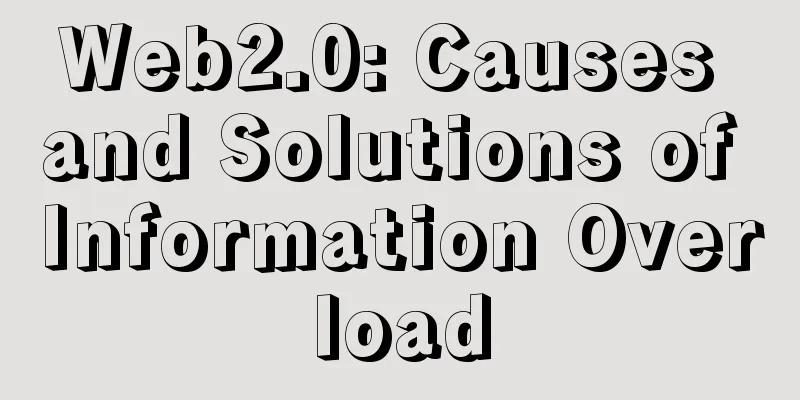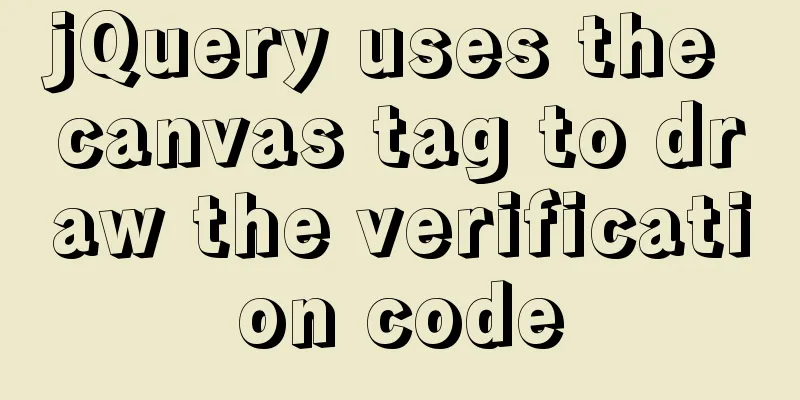Web2.0: Causes and Solutions of Information Overload

<br />Information duplication, information overload, information compulsion, personalized customization, and search engine dependence are closely related to each other. In the Internet where information is constantly expanding, especially in the Web 2.0 era that advocates multi-person contribution, information duplication and information overload are particularly obvious. There are many reasons for information overload, one of which is information repetition. Information overload can lead to anxiety, irritability, etc. This article attempts to explore the causes and solutions to information overload.  (Information overload makes us look for non-garbage in a garbage dump) Information overload is like inflation. Although there is more money (information), there is less goods that can be purchased (useful information). 1. External causes of information overload <br />People who use RSS readers may be troubled by information overload. The reasons for information overload can be as follows: (1) Information duplication. Information duplication can be divided into three types: content duplication. For example, reprinting or quoting; this happens frequently. For example, I subscribe to several blogs about Google, and the content of these blogs is basically the same every day (of course, the overlap in the readership groups they target may be very small, so information duplication only occurs among a few people). Repeated views. The same information appears before my eyes many times. Sometimes even if the words are different, the point of view is the same. For example, many people often condemn Kung Fu Network. Improper reader algorithm. Sometimes a friend shares an article with me, but in fact I have already read this article from an information source I subscribe to. The reader should have the function of filtering the information I have read. (2) Too much information. There are two types of information overload: too many sources of information. Many heavy readers subscribe to hundreds or even thousands of information sources. Too many messages. If you have subscribed to many information sources, and if each information source outputs an average of 3 new contents per day, then the total number of information is "3*number of information sources". 2. Internal causes of information overload <br />Information compulsion is the main internal cause of information overload. Information OCD refers to the psychological phenomenon in which a person forces himself to understand certain information and is afraid that the information will be missed. The details will not be elaborated here. For more information about the symptoms and related content of information compulsion, please read Information Compulsion and Search Engine Addiction. 3. Problems caused by information overload 1. Irritability. Information overload can make us feel irritated. Because when faced with a large amount of information, we sometimes don’t know where to start and where to end. When this information is finished reading, new information comes. Another thing is the repetition of information content. Both of these aspects can make us feel irritated. The frustration caused by information overload begins with the frustration caused by too little information. Why do I say so? People with information compulsion will feel out of touch with the world and irritable when there is too little information, and will try every means to obtain more information. Over time, the amount of information becomes large, and then you will feel annoyed by information overload. The Journal of Library Science in China used a good metaphor when introducing the problems of information shortage and overload: In a compartment of a train on a long journey, there is only some scenery outside the window, no reading material, games, tapes or other entertainment; one passenger is already in the compartment and another gets on; one can imagine the role that the newcomer may play. If he is taciturn, he may become bored during the entire trip due to lack of information. This is especially true when there are no other means of entertainment. If he talks too much on some topics, for example, repeating some opinions, colloquialisms, stories, etc. monotonously and endlessly. It's an overload of superfluous information, perhaps more annoying than silence. If he talks endlessly, he will talk about every topic in detail. Such a partner is at least as boring as a silent person. It can be called an overload of information diversity, with noise. 2. Loss of time. Spending a lot of time reading repetitive information is a waste of time. 4. Solutions to information overload 1. Start with yourself: delete those worthless information sources. Don't be afraid that you will miss some useful information. Even if this information is useful, it is insignificant compared to the wasted time and irritability. Set a time for reading. Set a limit on how much time you should spend reading information every day, and don't immerse yourself in the ocean of information. Personalized information customization. Only subscribe to or read content that is relevant to you. Don’t force yourself to understand other content in depth. Customize personalized information channels for yourself. Graded reading. Give priority to reading important information sources; the rest are optional. 2. Starting from the outside: Improvement of the reader. In "Chapter 1", I mentioned that the current reader algorithm has some shortcomings. My ideal reader is one that can identify duplicate and similar content, and automatically ignore it after confirming that I have read it. Keyword filtering. There are many specialized RSS filtering services that will filter information content based on set keywords and extract the essence. Personalized search. One manifestation of information overload is the large amount of content that appears when searching. My ideal search engine is one that can understand my search habits and search intent to at least 90% of the extent and provide the most accurate answers, rather than a large number of items for me to choose from. The problem of information overload seems to have brought up a new question: if everyone really contributes equally to content in Web 2.0, wouldn't information overload be even more serious? Therefore, I think that if Web 1.0 is unipolar, then Web 2.0 is N-polar, but this N does not tend to infinity. N is only a very small part of all information sources. We will discuss this issue further when we have time. |
<<: How to configure Jupyter notebook in Docker container
>>: JavaScript lazy loading detailed explanation
Recommend
Python writes output to csv operation
As shown below: def test_write(self): fields=[] f...
Detailed explanation of meta tags and usage in html
I won’t waste any more time talking nonsense, let...
Explain TypeScript mapped types and better literal type inference
Table of contents Overview Using mapped types to ...
A brief introduction to the differences between HTML and XHTML, and HTML4 and HTML5 tags
Difference between HTML and XHTML 1. XHTML elemen...
How to print highlighted code in nodejs console
Preface When the code runs and an error occurs, w...
Standard summary for analyzing the performance of a SQL statement
This article will introduce how to use explain to...
Share the 15 best HTML/CSS design and development frameworks
Professional web design is complex and time-consu...
4 ways to implement routing transition effects in Vue
Vue router transitions are a quick and easy way t...
A brief discussion on the role of the docker --privileged=true parameter
Around version 0.6, privileged was introduced to ...
Vue Learning - VueRouter Routing Basics
Table of contents 1. VueRouter 1. Description 2. ...
Native JavaScript implementation of progress bar
The specific code for JavaScript to implement the...
Start a local Kubernetes environment using kind and Docker
introduce Have you ever spent a whole day trying ...
Common shell script commands and related knowledge under Linux
Table of contents 1. Some points to remember 1. V...
A brief analysis of how to set the initial value of Linux root
Ubuntu does not allow root login by default, so t...
JavaScript to implement search data display
This article shares the data display code for Jav...









